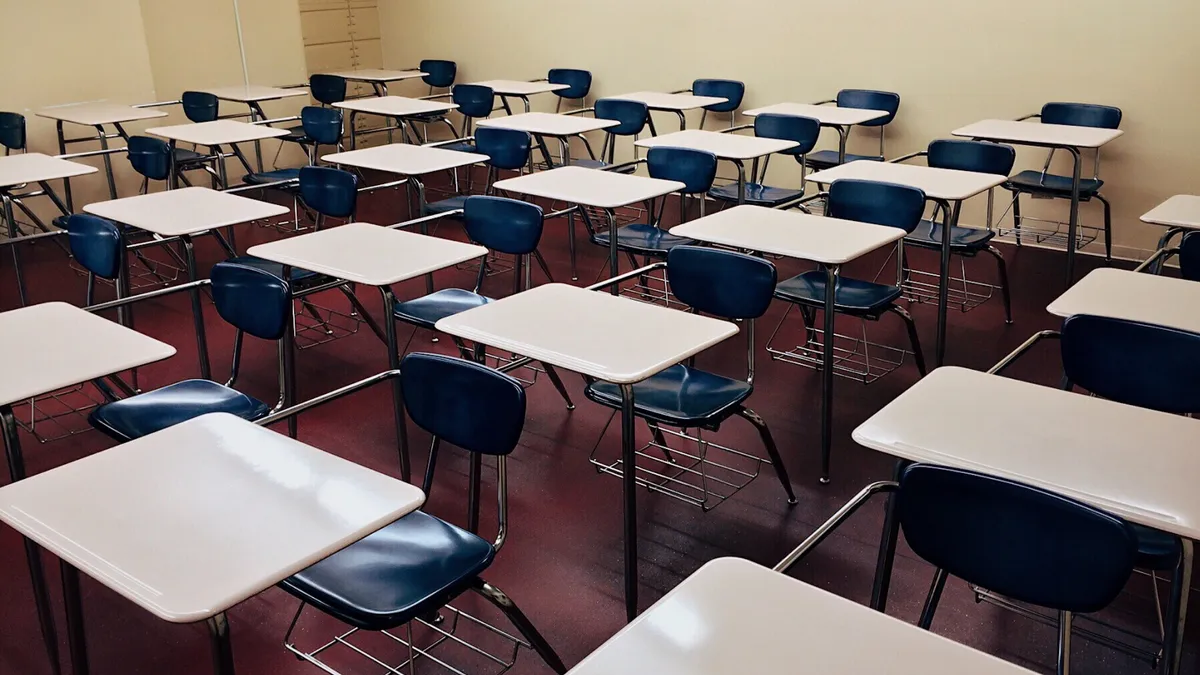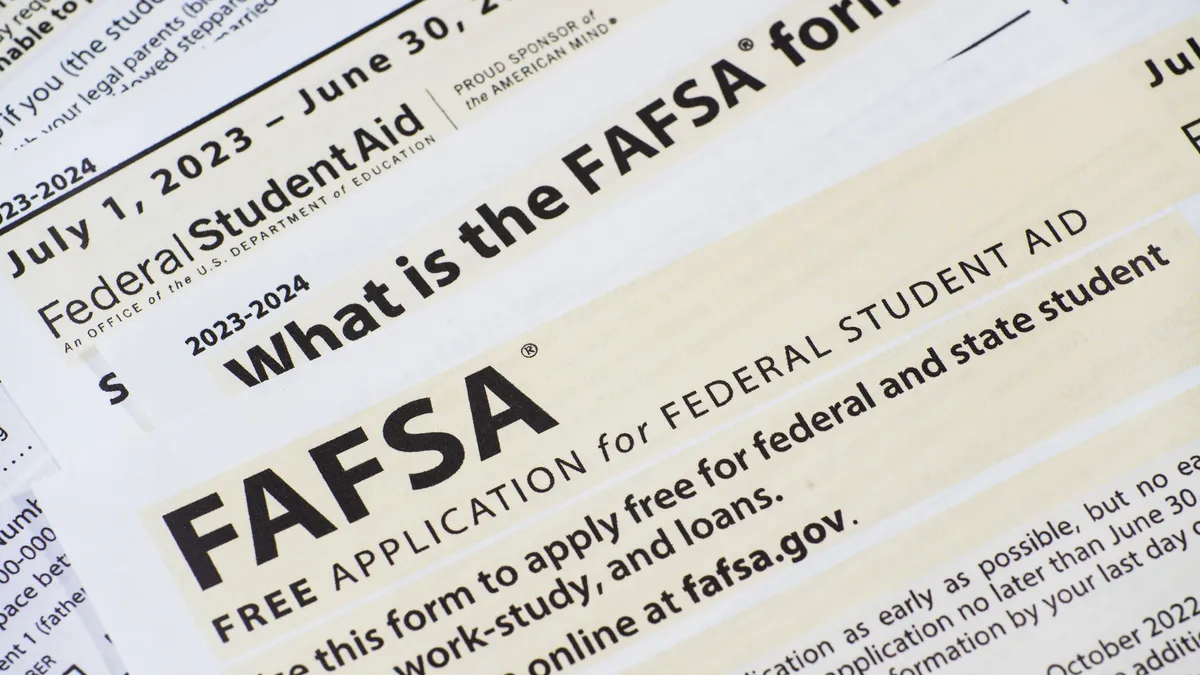Dive Brief:
- U.S. colleges could lose at least $3 billion from an expected drop in international students this fall, according to a survey of 346 institutions from NAFSA: Association of International Educators.
- The higher education sector has already lost almost $1 billion from shortened and canceled study abroad programs and spent about $638 million to support international students, faculty and staff when courses moved online earlier this year.
- Colleges could take years to recover from the coronavirus crisis, the report notes, especially as it puts international enrollment and study abroad programs in flux.
Dive Insight:
More than three-fourths of respondents said they expect losses in fall 2020 from international student enrollment declines. About 61% anticipate the decline will lead to losses of $500,000 or less, while around 21% predict losses of $1 million or more.
Moreover, travel restrictions have made it difficult for many international students to return home, essentially stranding them in the U.S., where they often have limited aid or employment opportunities.
Some colleges have been stepping in to help. Almost 38% of the survey's respondents said they've financially supported international students impacted by the pandemic. The top types of financial support include housing refunds, tuition scholarships, and help with food and rent. Still, 40% said they have not provided financial support, though a small percentage said they do not have international students.
Colleges have also been forced to cancel study abroad trips and evacuate their students living in other countries. Nearly one-quarter of colleges that canceled study abroad programs said doing so has cost them $500,000 or more, the survey notes.
A recent survey of 599 U.S. colleges from the Institute of International Education bolsters NAFSA's findings. More than 250 polled institutions said they had to evacuate nearly 18,000 students combined who were studying abroad.
Moreover, 70% of colleges expect travel restrictions and visa delays will prevent some international students from coming to their campuses in the fall, it found.
Such issues could further strain the budgets of some colleges, which are reeling from campus closures earlier this year. Moody's Investors Service downgraded the outlook for the higher education sector from stable to negative earlier this year, citing "unprecedented enrollment uncertainty" and the losses that colleges incurred from room and board refunds.
In a separate report, the credit ratings agency noted in early April that if state and federal governments don't effectively stem the pandemic, international students may be less likely to come to the U.S. for higher education. Whether travel is restricted to and from China will also be key, as Chinese students make up one-third of U.S. international enrollment.
NAFSA is advocating for Congress to allow colleges to use funding in future COVID-19 recovery packages for their international and study abroad offices. The organization is one of many higher education groups requesting $46.6 billion in emergency aid for colleges and their students.









